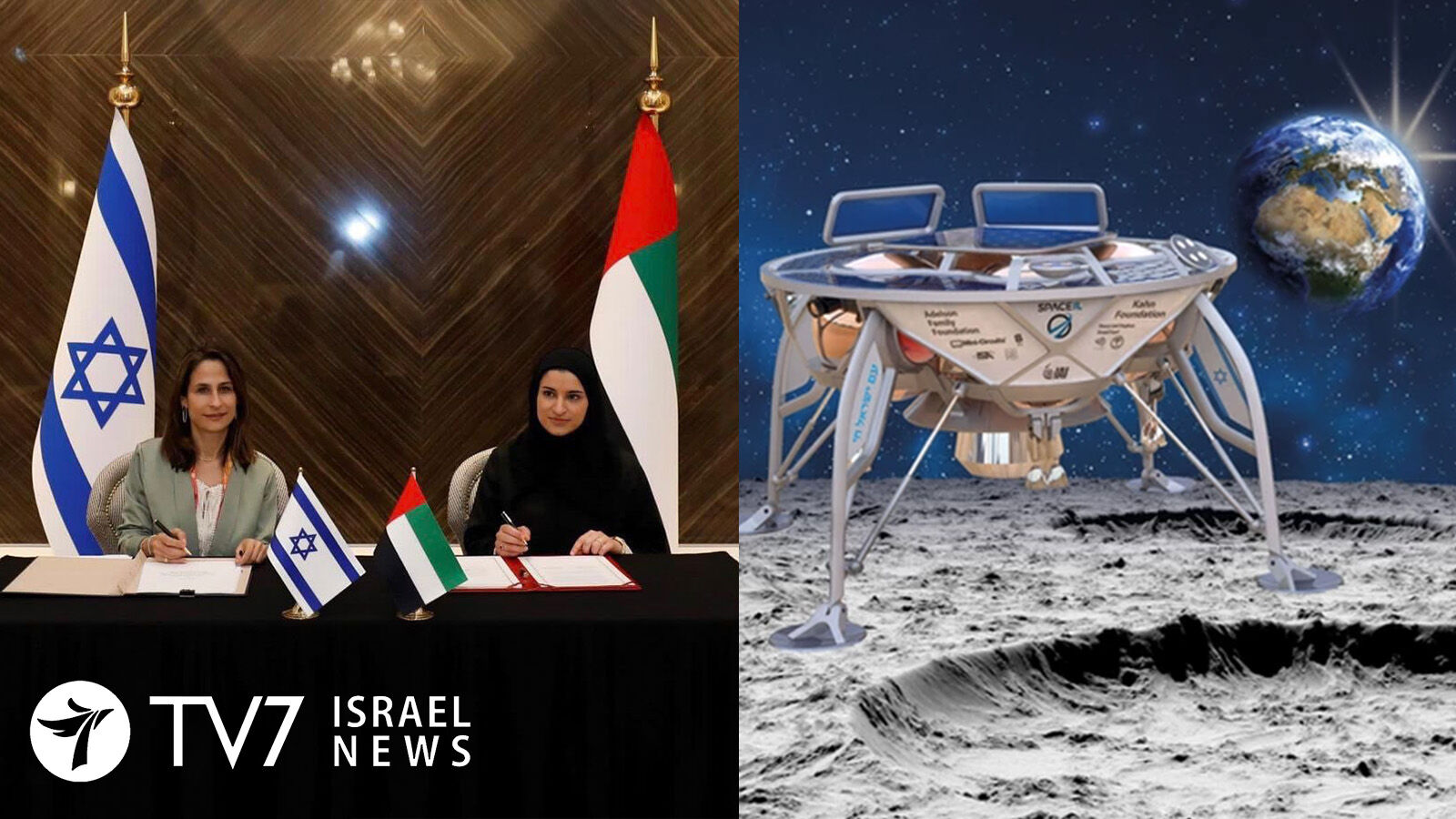Israel and the United Arab Emirates have signed a space collaboration agreement that will culminated with the planting of both nations’ flags on the lunar surface by 2024.
By Erin Viner
Jerusalem and Abu Dhabi’s own national space programs are among the most advanced in the Middle East. Israel’s first “Beresheet” (Hebrew for “Genesis”) mission entered the Moon’s orbit in 2019, while the UAE’s “Amal” (Arabic for “New Hope”) reached the orbit of Mars last February.
The deal includes several joint projects as part of Israel’s “Beresheet 2” lunar mission slated to be get underway in 3 years.
The ambitious plans include the launching of a mothership into space for 5 years as a multi-national research center, from which two of the lightest-ever landing craft would be deployed during a double landing on the moon. One of the 120-kilogram (265 pound) vehicles would land on the far side of the moon – where so far only China has been, while the destination of the other has yet to be announced.
The development marks the latest cooperation between Israel and the UAE, which signed the Abraham Accords to normalize relations in 2020.
Last March, a pledge by the UAE to invest $10 billion in Israel included the funding of space projects. So far, Israel has reportedly already raised $70 million from international partnerships and donors toward the overall estimated cost of the $100 million to launch Beresheet 2.
Foreign Minister and Alternate Premier Yair Lapid visited the UAE in June to formally inaugurate Israel’s Embassy, in what was the first-ever official visit by an Israeli minister to the Gulf state. Just one day prior to announcement of the two countries’ joint space deal, UAE Ambassador to Israel Mohamed Mahmoud Fateh Ali Al Khaja extended an invitation on behalf of Abu Dhabi’s Crown Prince Sheikh Mohammed bin Zayed al-Nahyan for Israeli Prime Minister Naftali Bennett to make an official state visit to Abu Dhabi in the near future.
It is interesting to note that both the Jewish and Muslim calendars are based on the moon, while most of the world adheres to the Gregorian calendar set according to solar cycles.
